Igbo Spirituality
Understanding The Concept Of CHI In Igbo Cosmology – What Is Chi In Odinani na Omenani Ìgbò?
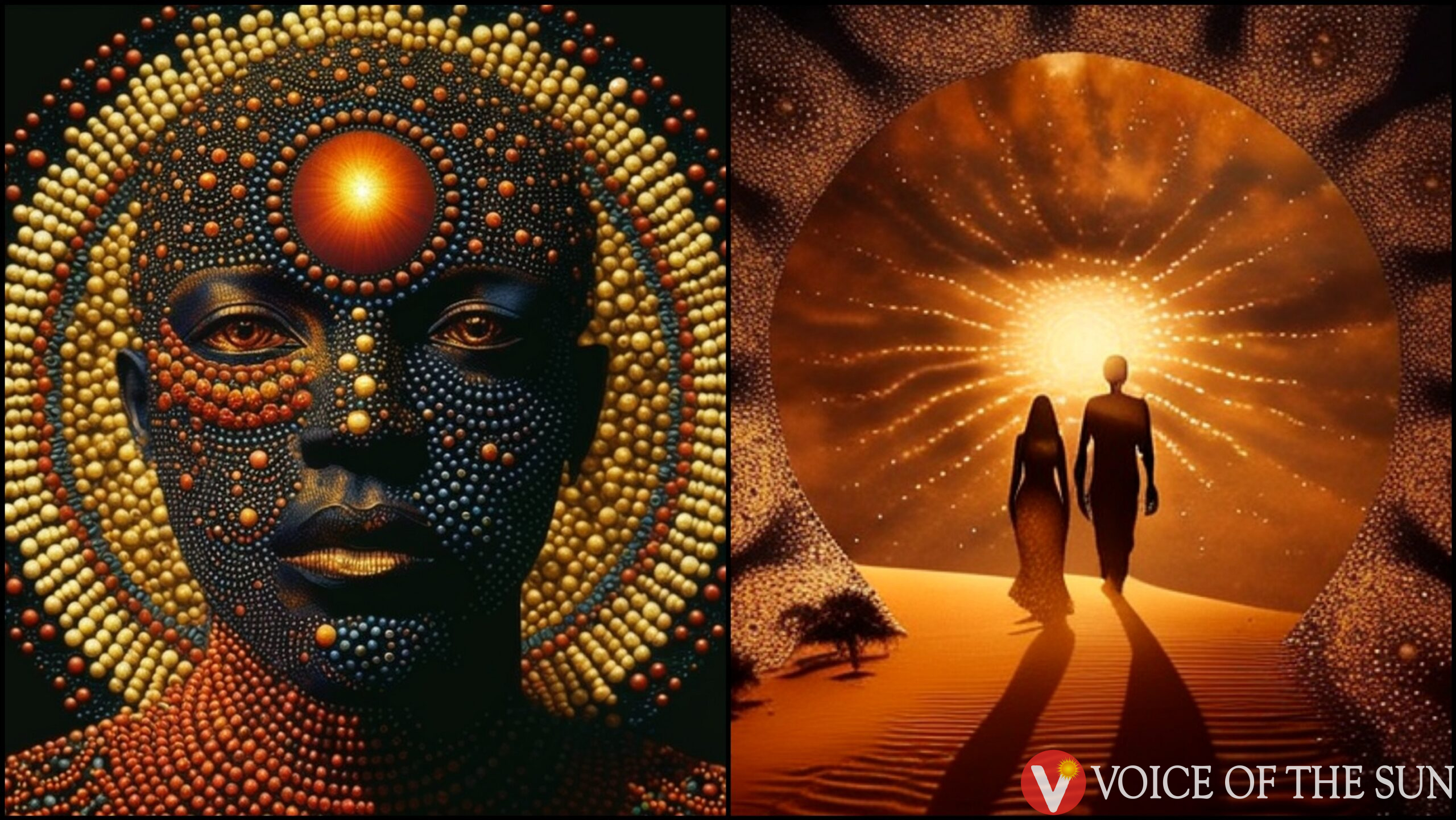
To fully understand the concept of Chi in Igbo cosmology, one must first realize that only those who immerse themselves truly in the wisdom of our ancestors, Ndị Ịchie, and Ndị Gboo, the ancient forerunners of our civilization, can understand and fully enunciate its dynamic partnership with man, aimed at attaining purity, truth, and oneness with Chi Ukwu. But we will do our best to explain the basis and foundation on which CHI rests, for Ndi Igbo.
There are two distinct meanings of the word CHI in the Igbo cosmology and worldview. The first translation and meaning are that Chi represents our soul, and is your spirit-double, personal spirit, providence, energy, and driving force. For Ndi Igbo, CHI is the foundation of our existence and connection to creation. And so, our ancestors said “Chi Di”, which means “The Chi exists”. This is evident in our practice of Odinani na Omenani, where a man who does not know and call on his CHI cannot proudly say he knows himself or Chukwu, his creator.
The second meaning of Chi In Igbo Cosmology is day or daylight, signaled by the rising of the sun. In this second meaning, Ndi Igbo use CHI to refer to the transitional periods between day and night or night and day, and it is seen in our language when we say CHI ofufo (daybreak) and CHI ojiji (nightfall).
In this article, we will first explain CHI in the context of the soul, energy, light, and our spiritual connection to the creator (CHUKWU), and creation around us, before we will explain the connection between CHI (the soul), and Chi (daylight).
Chi In Igbo Cosmology – Our One True Connection To Chukwu, The Creator
To understand the meaning, origin, and essence of Chi in Igbo odinala na omenala, is to attempt to unravel the mystery which is Chi Ukwu, the benevolent creator. It is a feat that our noble Igbo ancestors have attained – for the concept of the Chi in human life and existence is woven deeply into the very fabric of Igbo spirituality, cosmology, and worldview.
Many Igbo sages, Ndi Dibia, philosophers, and academia have over the years translated and defined CHI in English, in a noble attempt to educate the world on our spirituality and worldview as Ndi Igbo. And following in their footsteps, we will further explain the concept of CHI In Igbo Cosmology, while touching on the various ways in which our Ndi Dibia, philosophers, and sages have defined CHI.
CHI, according to Ndi Igbo and our understanding of the universe, can be said to be “a collection of all the Divine Sparks of the Supreme spirit/creator (CHUKWU, OKIKE, OLISA EBILI UWA) that take human form and dwell in the personal world of each human being for spiritual training, control, purification, guidance, judgment, and power. The CHI can also be referred to as a “personal god/goddess” or ‘personal deity”. The CHI embodies our individuality, where no two people are the same; and this is embodied in the Igbo saying ‘onye na chi ya’, meaning “one and his/her chi – One and his/her personal connection to Chi Ukwu/creator”.
Ndị Gboo, our ancestors, in defining the source of all things (good or bad) in a person’s life, named their children ‘ife si na chi’, meaning ‘things come from the CHI’. This clearly shows that CHI is the ultimate provider for us in our life’s journey. And to further buttress the meaning of ‘Ife si na Chi’, we believe that the spark of Chukwu/energy/personal deity/spirit being that provides for and guides a man/woman is different from the spark of Chukwu/energy/personal deity/spirit being that provides for and guides the father, mother, son, daughter, brother, sister, wife, and husband of that person. And as such, our ancient ancestors, who passed down Odinana/Odinani/Odinanla to us maintained that ‘Chi awu/abu otu’, meaning that the ‘Chi is not the same for each one of us’.
In Igbo Odinani, as a supreme form of spirituality, a person’s CHI is his/her only way to consciously connect to Chi Ukwu (the supreme being). The presence of the CHI in our individual lives directs our morality (ezi omume), the manifestation and actualization of our destiny (akala/ Akara áká), the purification of the soul (Nsacha ịme mmụọ), and our acceptance into Obi Ndị Ịchie (the spiritual realm and holy abode of our ancestors, who have become positive co-workers of the supreme being).
In consolidating the meaning of CHI for Ndi Igbo, other Igbo philosophers, and Ndi Dibia have also called the CHI a personal guardian angel. Even though the word angel (as borrowed from European thought) does not fully express the meaning of CHI. However, CHI for Ndi Igbo is a divine agent assigned to each human from “cradle to the coffin”. This means that the creator, CHUKWU, will assign a CHI to every person before and at the time of birth and that this CHI will remain with the person for the rest of their life on earth (Ụwa).
The Igbo understanding of CHI expresses it in two different genders. CHI can either be masculine or feminine, although many of our old Odinani sages maintain that a good CHI is a feminine energy, and the male CHI (Oké Chi) can be turbulent. We see this when a man or woman has a troubled life, and nothing seems to work for them. Ndi Igbo says ” Onye nwere Oké Chi“, which simply means that the male CHI is responsible for the troubles. It goes to explain the Igbo belief, that the CHI determines a person’s successes, misfortunes, and failures throughout his/her lifetime.
According to John Anenechukwu Umeh, in his book “After God is Dibia”, in his description of the spiritual importance of Otu/Ofu/Ovu/One in relation to Chukwu, he said that the creator (Chukwu) is the source and sustainer of all things seen and unseen in the universe and that the individual CHI is the only link with which all of the creation connects to CHUKWU. He went further to say that “there is only one basis of apparent and transient independent existence and that that is CHI, which is, in turn, part of Chi-Ukwu (CHUKWU).
In line with the foregoing, he gave the following illustrations based on Igbo adages:
“Onye nyobe Mmụọ, Ọ fu chi ya“. Which means “whoever pries into the Supreme Spirit will at the end confront his/her Chi”.
This simply means the totality and essence of our spirits are found in our CHI, which is itself a part and parcel of Chi-Ukwu (CHUKWU), the great Universal Spirit (Creator). From the dawn of time, our ancestors have always believed and practiced that Chukwu is a Macro-Chi (Chui-Ukwu, the Great Chi), containing and directing countless Micro-Chi (Individualized gods) as seen in humans and other elements of nature.
The concept of Chi In Igbo Cosmology rests in the Ìgbò belief in duality. It places man side by side with their respective Chi, with the Chi being the spirit double of man as is with all living things in the universe.
Chinua Achebe in his essay “Chi in Ìgbò cosmology” wrote that a person’s CHI is his other identity in spirit land – his spirit complementing his terrestrial human being because nothing can stand alone, there must be something standing beside it.
This belief in the Ìgbò worldview is expressed in the adage: Ife kwulu, ife akwudebe ya, literally translated to: “Wherever something stands/exists, something else will stand/exist beside it”. And as such, we do not stand alone in our journey through each life we come to. We stand side by side with our CHI.
CHI, according to a renowned Odinani promoter and philosopher, Ekene Okwuba, is a universal spirit that permeates the seen and unseen world. That is why the Igbo people will say Chi efo OR Chi aboola, which means that the day has broken, signifying the universality of the CHI. CHI is everywhere. For him, CHI is the fifth unseen force that holds everything in the universe together. CHI in this understanding is seen as the quintessence – the fifth unseen substance of nature that the celestial bodies are made of, gotten from medieval philosophy.
In his understanding of CHI, Ekene insists that there is nothing demanded of us to fortify the CHI or to make it stronger because it is an energy that already ha – that the CHI exists if itself and organizes creation by itself, without our dictation. The trees, animals, and all things in creation possess this CHI.
He went further to say that the Igbo expression of CHI goes beyond its force in the creation and also pertains to how it acts on us individually, or our realization of it. In this manner, the Igbo liken CHI to something helpful to them. In that sense, a person who helps you can also be said to be your CHI. We see this in the Igbo saying ” Ogo bụ chi ònye“, which means “One’s In-law is his/her CHI”. He also opined that if an Mmụọ or Alusi (deity) comes to one’s aid, the Mmụọ can be said to be a CHI to you.
The other aspect of Chi which various Igbo Philosophers and Ndi Dibia of this generation see from different points of view (even though they mean the same thing), is the aspect of Onye Ụwa. In this regard, many people believe that Onye Ụwa is the same as your CHI because, in a former life, your CHI inhabited your Onye Ụwa, while others say they are two different parts of us, both working together to help us manifest our destiny.
Ekene Okwuba, in light of the foregoing, believes that Onye Ụwa is an ancestor who has foreseen your coming into the world, has made inevitable mistakes in the past, and then attaches himself/herself to you to help you avoid those same mistakes. And because the Onye Ụwa becomes your helper, we can then say that he/she is your CHI. So, the role of the Onye Ụwa is for you to fulfill your destiny. This belief, when viewed and juxtaposed with the popular belief that ” Onye Ụwa is who you were in your past life”, we would find spiritual similarities, which buttresses on purpose and fulfillment of destiny.
I would talk more about the connection between Onye Ụwa and CHI in a subsequent.
Understanding CHI in the Igbo name for the creator, Chineke (CHI na EKE)
The Igbo believe in and worship the creator of the universe, whom we call Chukwu – a mixture of two words, Chi and Ukwu. Chi Ukwu means “The Great Chi” or “The Big Chi“, and shows that Chi, for the Igbo, represents the creative force of the universe and that we all carry smaller sparks/versions of the one supreme Chi (Chi Ukwu).
The Igbo also call the creator Chineke among other names. The concept of Chi remains dominant in this second name given to the creator by Ndi Igbo. However, the meaning of the second name Chineke, which is a combination of two words Chi and Eke, with a conjunction “na” (and), is unique and represents the two sides of the force of creation. Although most modern Igbo people believe Chineke to mean, God the creator, it has a deeper meaning found in Odinani na Omenani, as against the shallow translation of Chineke to “God the Creator” done by the early missionaries.
In Odinani na Omanani Igbo we believe that Chi na Eke (Chi and Eke) are a duality that represents the creative and distributive force of Chukwu. CHI is the male energy, while Eke is the female energy, both assigned by Chukwu to distribute our shares to us in each life cycle, from birth to death. Eke (which means sharing/sharer/distributor/giver) being a more mysterious and less explained associate of CHI remains an integral and portent part of our understanding of creation and the creator. Without Eke, the CHI cannot function. And without “Chi na Eke“, man cannot reach Chukwu, to manifest his destiny.
Eke, in some parts of Igbo land is used to replace CHI. Although it is not common in this modern generation of Ndi Igbo, we see ‘Eke‘ in certain names and expressions. In the places where ‘Eke‘ is seen in the Igbo worldview, it replaces ‘Chi’ effortlessly. An example is Chinwuba (Chi possesses/holds increase), in which we see ‘Eke’ replacing ‘Chi’ in a similar name Ekejiuba (Eke possesses/holds increase). We also see this in the name Nebechi (look to Chi), which has ‘Eke’ replacing ‘Chi’ in Lemeke/Leweke). According to Chinua Achebe, in his essay ‘Chi In Igbo Cosmology’, the CHI versions of these names occur more in the northern and western parts of Igbo land, while the ‘eke’ names are usually used more in the southern and eastern parts of Igbo land.
Eke (as a part of the CHI) is also called ‘aka’ in many parts of Igbo land. We hear it in sayings like “Ị na akpali Chi gị na aka gị“, meaning “You are insulting your Chi and your aka”. The aka replaces the Eke, in this statement used to call a man/woman to order when they are disrespectful to elders or speak out of line to others.
To conclude the duality and meaning of Chi na Eke to Ndi Igbo, a story will suffice, being that the ancient Igbo in their wisdom embedded the spiritual meanings of our cosmology in adages and folklore. This story is about the hen. The ever-busy Hen was asked why she scratched the ground for food from daybreak to sunset, without ever being satisfied. In her response, the humble hen said: ‘You see, my dear fellow, when I wake up in the morning, I begin to look for food for my chi. When I am through with that, I must then find some for my Eke. By the time I finish with that too, it is already sunset and I haven’t catered for myself!’
From the folklore above, it is evident that Ndi gboo accepted and enunciated the relationship and dual responsibility shared between CHI and EKE, both deities manifesting the male and female sides of Chukwu’s creative force.
The Relationship Between Chi (soul) and Chi (daylight) In Odinani Igbo, Pinpointing The Realm Of Chi in Igbo Cosmology
The ancient Igbo in their wisdom and understanding of creation had the same name for our souls (CHI) and the daylight (Chi) which accompanies the rising of the sun (Anya anwụ/Anyanwụ). And so also in the practice of Odinani which they handed down to us, Ndi gboo designated the sun as the dwelling place and ultimate source of the life/soul/spirit (CHI). They believed that the sun is the medium through which our individual CHI enters our world, to take on Anụ arụ (bodies/clothes). We see the practice of this belief in the ritual of installing (Ịdotu Chi) the physical representation of a man’s Chi (Okpensi CHI).
When a man comes of age in many parts of Igbo land, he is expected to physically invite his CHI into his home by setting up a shrine dedicated to complete communication with his CHI. He will invite a Dibia to perform the ritual of Ịdotu Chi, which is bringing down the CHI from the face of the sun, at daybreak. The CHI is invoked into the Okpensi CHI and will remain in the man’s compound until the day of his death when the shrine must be destroyed.
The implication of the above ritual simply means that our individual CHI resides with the sun, the bringer of daylight, or in other meaning, the CHI passes through the sun to visit our world (Ụwa). And this completely aligns with the Igbo belief that CHUKWU (the creator) is in close communion with the sun (Anyanwụ).
In line with the foregoing, it then simply establishes the fact that the dwelling place of the CHI is not Ana mmụọ (spirit realm of dead people), as has been erroneously taught by those who try to marry Odinani and Christianity. It is important to note that there are two spiritual realms in Igbo cosmology; “Ana mmụọ” is a dwelling place of the spirits of dead people, while “be mmuo” is the home of CHUKWU, CHI, and all other Alusi that carry out the work of the creator (Chi Ukwu, Chi na Eke, Olisa Ebili Uwa).
It is important that in our definition of the realm and source of the CHI, we do not carelessly relegate the CHI to the land of the spirit of the dead. This is because they are two distinct realms as I have mentioned above. Ndi Igbo, in their understanding of life and the afterlife, look forward to the next world (after we die) as a spiritual realm that is as much the same as the physical world. The ground, forests, hills, valleys, rivers, streams, oceans, and roads leading to various towns, are just like we have here in this reality.
Dead ancestors, who now inhabit the spirit world (Ana/Ani mmụọ) have their usual occupations, just like when they were in the world of the living. It is from this ana mmụọ that dead ancestors and people come to our realm, in an ever-continuous cycle of life, death, and reincarnation. This abode of ancestral spirit is different from the dwelling place of the CHI, which according to Ndi Gboo is the sun (Anyanwu).
The Importance of CHI to The Igbo, As Expressed in The Names We Answer
To fully understand how important CHI was/is to Ndi Igbo, we only have to take a look at the names we give to our children – for the names a man gives to his children clearly show his beliefs, his life’s experiences, fortunes, misfortunes, and aspirations. There are other adages and proverbs of Ndi Igbo which reveal the core relevance and place of CHI in the Igbo world and Igbo cosmology.
Some of the names which our Igbo ancestors revered and which hold the blueprint of the importance of the CHI in Igbo cosmology are Chika, which means Chi is supreme; Chibuzo, which means Chi is front/Chi takes the lead, Nebechi, which means look to Chi. Wealth, increase, and prosperity, which for the Igbo, are the evidence of a life well lived, comes to life in the name Chinwuba – meaning that all success belongs to the CHI. In Chinwendu, we profess that the chi has power over life, and in Chikadibia, we profess that the Chi (as an aspect of Chukwu) is greater than the Dibia (healer/diviner). A man who has been a victim of false accusations will name his child Chiebonam, meaning “may my chi not accuse me”, which points to the fact that the verdict of one’s CHI is what matters in the end.
In his essay ‘Chi In Igbo Cosmology’, Chinua Achebe says that the Igbo believe that a man receives his gifts/talents, character, and general life’s possession before he/she comes (or reincarnates) into Uwa, the world. The Chi is the one who leads the bargain for the fortunes, misfortunes, possession, and lack, that a person is entitled to. And this is why the Igbo say Ọ bụ etu ya na chie si kwụ – which you will most often hear when a man’s tribulations have become too much for anyone to understand, or for him to bear, leading observers to conclude that his situation was his agreement with his CHI. This is so because the ancient Igbo believed in a basic universal justice, where a man’s fortune cannot be so terrible if he is not responsible for it. This understanding of the role of CHI in one share in life is seen in other names such as Chijioke and Nkechinyelu.
The Igbo believe that what a man says or puts his heart to, his CHI will agree to it, in the adage Onye kwe chi ya ekwe. But this is not always the case. We see cases where a man put in all the effort and passion he can muster, but nothing works in his favor. And we say Chi ya ekwero/ekweghị, meaning his Chi does not agree. This can mean two things. Either the man is trying to alter the path to which he had agreed with his CHI before he was born, or he has an Ajọ Chi – A Bad Chi.
The Igbo belief in “one man one Chi” is evident in the saying ” Ofu nne n’amu, ma na ofu Chi a n’arọ eke“. This saying can be often heard when two brothers from the same parents display characters that are completely opposite.
In our understanding and expression of the creative role of CHI in Igbo cosmology, we Ndi Igbo name our children “Chiekezie” – meaning that the CHI of that person has restored balance by that creation or has equally shared gifts and fortunes in a family. In the same understanding of the creative power of the CHI, we say “Chi ya kegbulu ya ekegbu” when a man is unattractive or deficient in character.
How To Identify, Know, And Commune with Your CHI Through Odinani
The importance of knowing and reverencing one’s CHI is one aspect of the Igbo worldview that has been buried under a huge pile of falsehood, lies, and propaganda by Christianity in Igbo land. Ever since our encounter with Christianity, many of our people now moved from the belief in the individuality of the CHI to a one (Universal) CHI which they believe to be Jesus Christ – this same Jesus Christ whom they call God and used to replace CHUKWU the creator.
But the truth remains that Jesus Christ is not a universal CHI for us Ndi Igbo, and our continued practice and belief through Odinani has retained the very essence and truth of the nature of the CHI, and the importance for a man/woman to know his/her CHI, and venerate that CHI.
Today, we have many young Igbo men and women seeking answers as to how best to return to Odinani, and also know and commune with their CHI. Many of them do not fully understand the concept of CHI but believe strongly in the need to know their respective CHI, and commune with that life force that drives their very existence. For such people, I say Nnoo, welcome.
Two rituals and processes in Odinani na Omenani lead to the complete knowledge and reverence of the CHI. The first is Afa Chi (Afa agu), a divination ritual used by a Dibia Afa to identify your CHI/Onye Uwa, trace who you were in your past life, and also identify the kind of life you lived and how it will affect this your present life. This process involves invoking your CHI from the face of the sun to reveal itself in the Afa and give you the necessary guidance and blueprint for your life’s journey. After this process is completed, you will go ahead to make sacrifices to your CHI, and commune with your CHI in prayer (Igo Oji).
The second and most important aspect of our journey to communing with our CHI is the ritual of Idotu Chi which means to draw down the CHI. This ritual is performed by a Dibia, who draws down the CHI from the face of the sun, and installs him/her in a physical edifice called Okpensi CHI. This Okpensi CHI now becomes the physical representation of the CHI and is being used as a point of contact when communing with one’s CHI. This Okpensi CHI is destroyed when a man/woman dies.
The processes mentioned above are just a summary of the process of knowing and communing with one’s CHI. The entire details of the process are left to be experienced by those who truly want to practice Odinani na Omenani Igbo. And maybe in the future, I will fully document it, but for now, the above explanation is enough for anyone who truly wants to understand the process of knowing his/her CHI.
You can watch a detailed video on this topic on our Youtube: CLICK HERE
This Article Was Written By Chuka Nduneseokwu, Editor-In-Chief, of Voice Of The Sun
Please Support and DONATE To Us. Help Us In Preserving Our History, Culture and Beliefs as Ndi Igbo. CLICK HERE to assist us financially.
REFERENCE:
John Annenuchukwu Umeh (1997). After God Is Dibia, Igbo Cosmology, Divination & Sacred Science In Nigeria. London: Karnak House.
Ekene Okwuba (2023). Understanding Agwu In Igbo Odinani an Omenani (Interview).
-
![How Igbo People Started Becoming Christians 181 Years Ago (1841–2022): A Brief History Of Christianity In Ìgbòland [Part I] How Igbo People Started Becoming Christians 181 Years Ago (1841–2022): A Brief History Of Christianity In Ìgbòland/Among The Ìgbò [Part I]](https://voiceofthesun.com/wp-content/uploads/2022/07/How-Igbo-People-Started-Becoming-Christians-181-Years-Ago-1841–2022-A-Brief-History-Of-Christianity-In-Igboland-Among-The-Igbo-Part-I-1-400x240.jpg)
![How Igbo People Started Becoming Christians 181 Years Ago (1841–2022): A Brief History Of Christianity In Ìgbòland [Part I] How Igbo People Started Becoming Christians 181 Years Ago (1841–2022): A Brief History Of Christianity In Ìgbòland/Among The Ìgbò [Part I]](https://voiceofthesun.com/wp-content/uploads/2022/07/How-Igbo-People-Started-Becoming-Christians-181-Years-Ago-1841–2022-A-Brief-History-Of-Christianity-In-Igboland-Among-The-Igbo-Part-I-1-80x80.jpg) Igbo History and Origins3 years ago
Igbo History and Origins3 years agoHow Igbo People Started Becoming Christians 181 Years Ago (1841–2022): A Brief History Of Christianity In Ìgbòland [Part I]
-
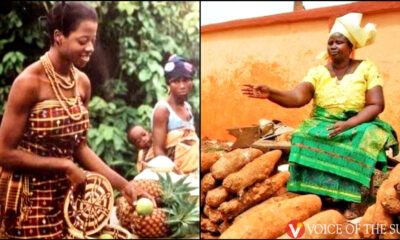
 Igbo Cultures And Traditions3 years ago
Igbo Cultures And Traditions3 years agoThe Four Igbo Market Days and Their Significance In Odinala na Omenala ÌGBÒ
-
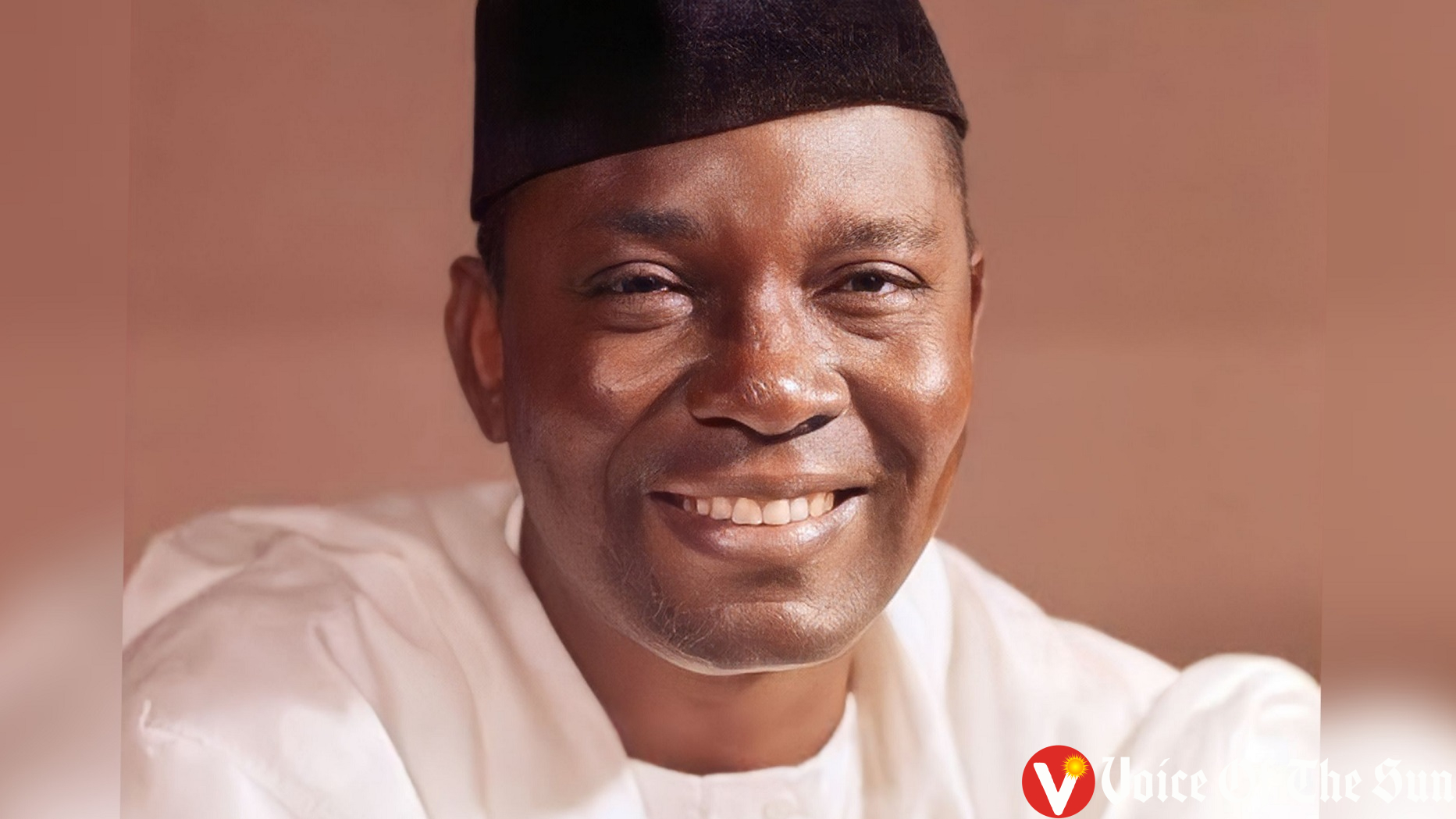
 Igbo History and Origins2 years ago
Igbo History and Origins2 years agoNnamdi Azikiwe: Legacy of a Nigerian Nationalist And Igbo Icon
-
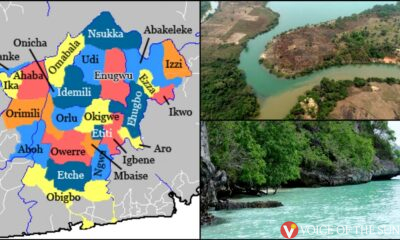
 Igbo News3 years ago
Igbo News3 years agoIgbo Land Is Not Landlocked – We Have The Deepest And Shortest Access To The Atlantic Ocean
-
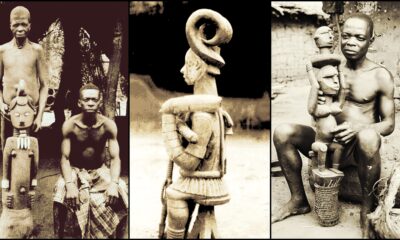
 Igbo Spirituality2 years ago
Igbo Spirituality2 years agoÌgbò Ancestors Did Not Worship Idols and Demons – A Journey Into Ịgọ Mmụọ In Odinana Ìgbò
-
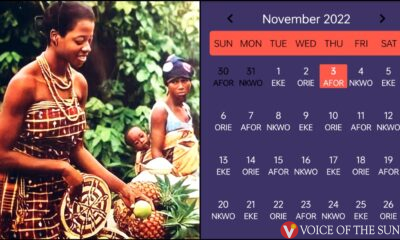
 Igbo Cultures And Traditions2 years ago
Igbo Cultures And Traditions2 years agoWhich Igbo Market Day Is Today – Get The Complete Igbo Calendar
-
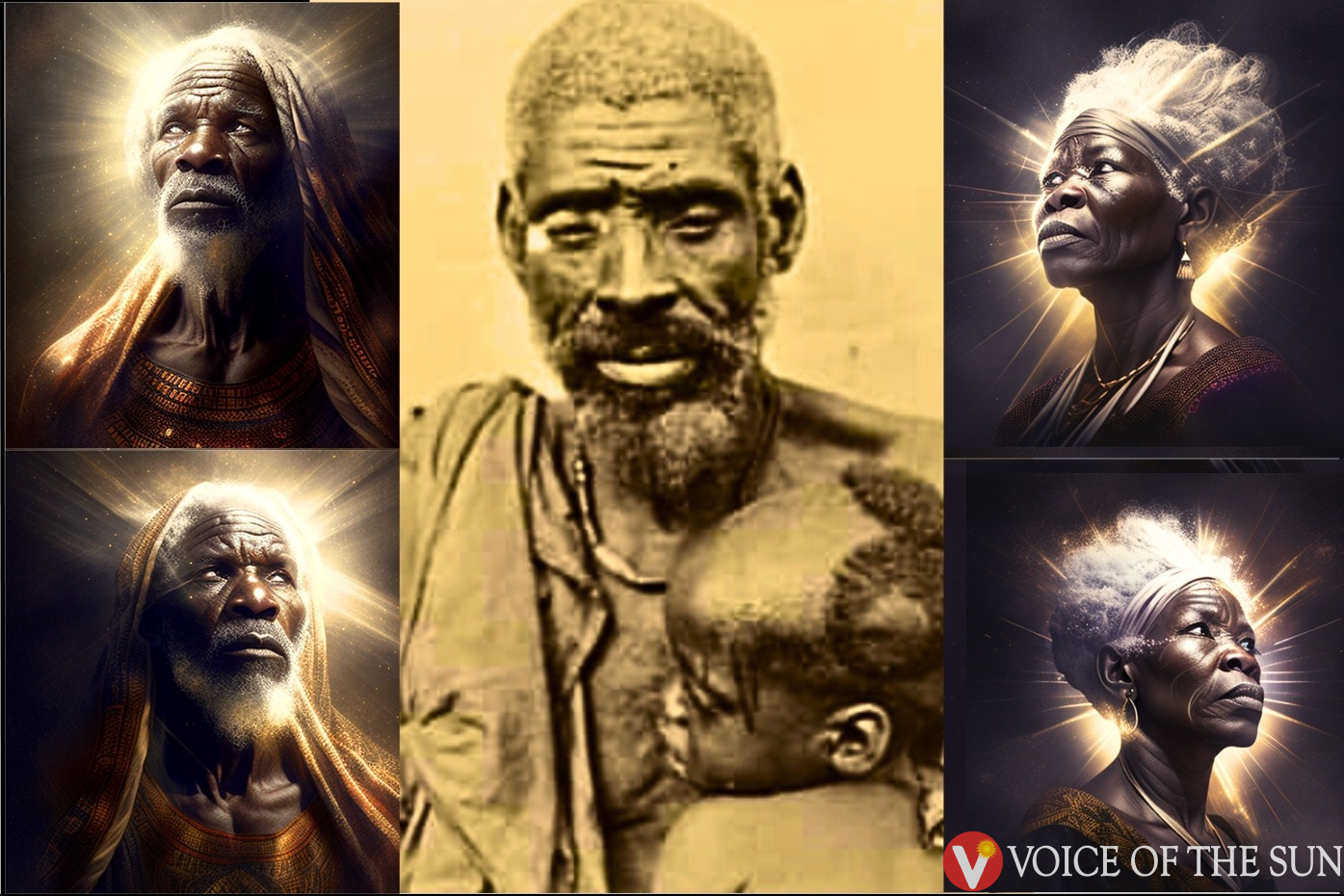
 Igbo Spirituality2 years ago
Igbo Spirituality2 years agoUnderstanding Ndị Ịchie In Igbo Cosmology: Who Are Ndi Ichie In Odinana na Omenana Ìgbò?
-

 Igbo History and Origins2 years ago
Igbo History and Origins2 years agoChukwuemeka Odumegwu Ojukwu: The Life And Legacy Of An Igbo Hero

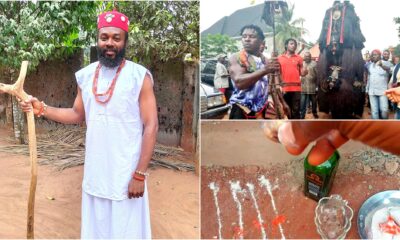

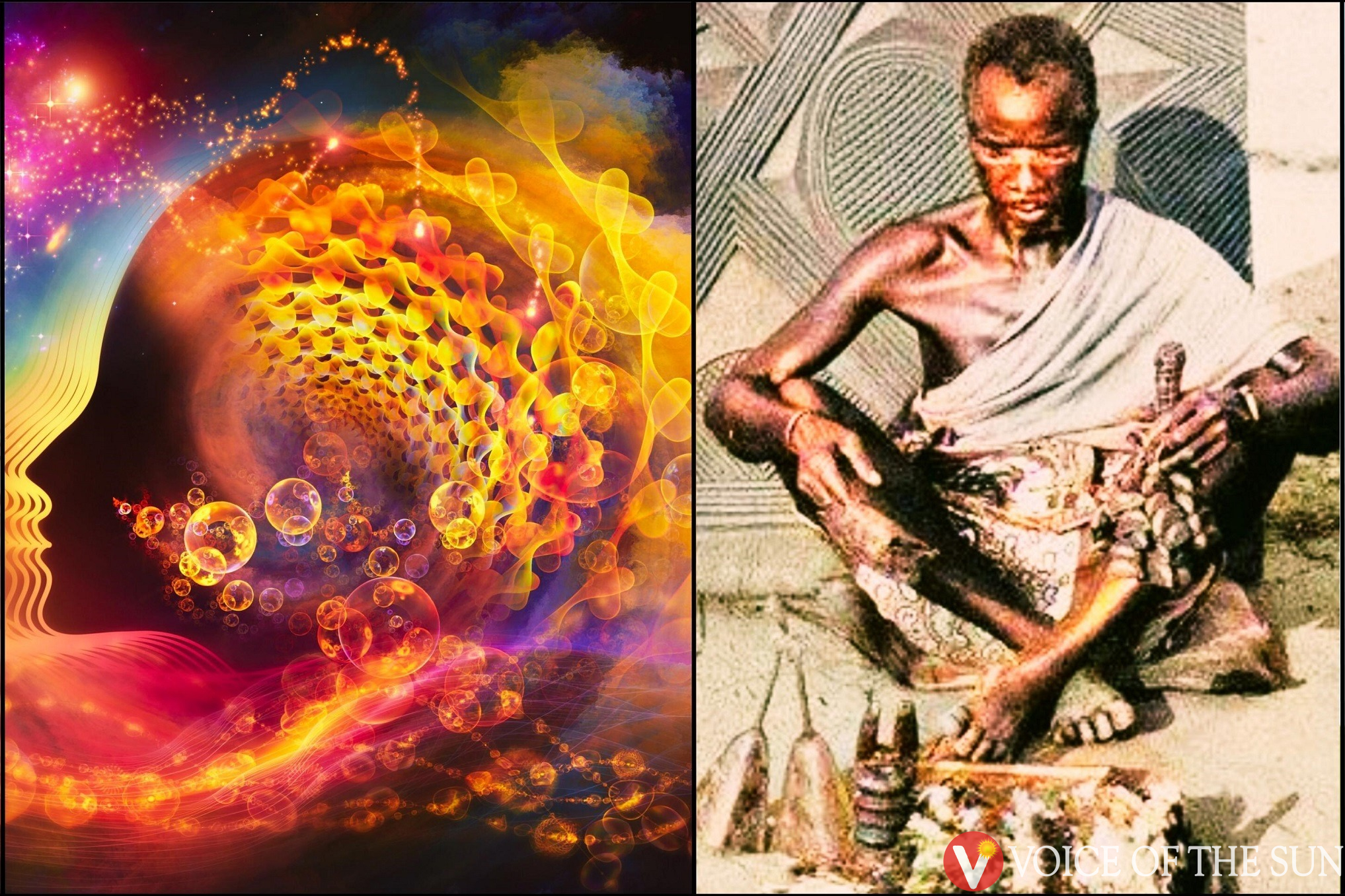
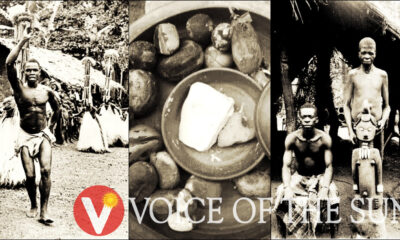

Edwin Modestus obineme
April 9, 2023 at 9:34 pm
Am deeply in love with this article and am interested for more of it because the Europeans have made many of us believe that our custom and tradition’s are evil . teaching us to believe the chi our ancestors do not know, making us to believe that we will be in heaven when God said he can not shear his glory with any man and ps 115vs16
OKONKWO IFEANYICHUKWU
April 10, 2023 at 8:40 am
Nnam ukwu daalu so much maka this write up…Biko anam atu Anya write up ozo dikwa otua….Udiri edemede a ka umunne anyi by ndi uka kpuchigoro uburu isi ha kwesiri Ina agu ka ha ghota na omenala na odinaani Mara mma nke ukwu..Anyi but ndi Igbo nwere Ihe….
Nnam ukwu ka ndi ichie na aja Ana Igbo chekwebe gi ma nyekwazia gi amamihe iga eji na akuzikwalu anyi odinaani anyi…isee!!!
Chukwu Abraham
April 23, 2023 at 7:49 am
I am deeply enlitened by this Article and I wish to thank you Onye edemede a maka ụbụrụ ọma ide ụdị edemede a.
I will share this because I want all Igbo person and Africans to know about this. Personally I know that the manner and the practice Christianity brought to out lands is not genuine. It was not intended for our good but to win us and bring us done from the Glory our Chi has placed us.
I would want to ready such article always. Keep me informed
Exbrown E
July 16, 2023 at 2:12 pm
Beautiful piece…. Ga n’iru Nwanne m.
Chukwu Gozie gi